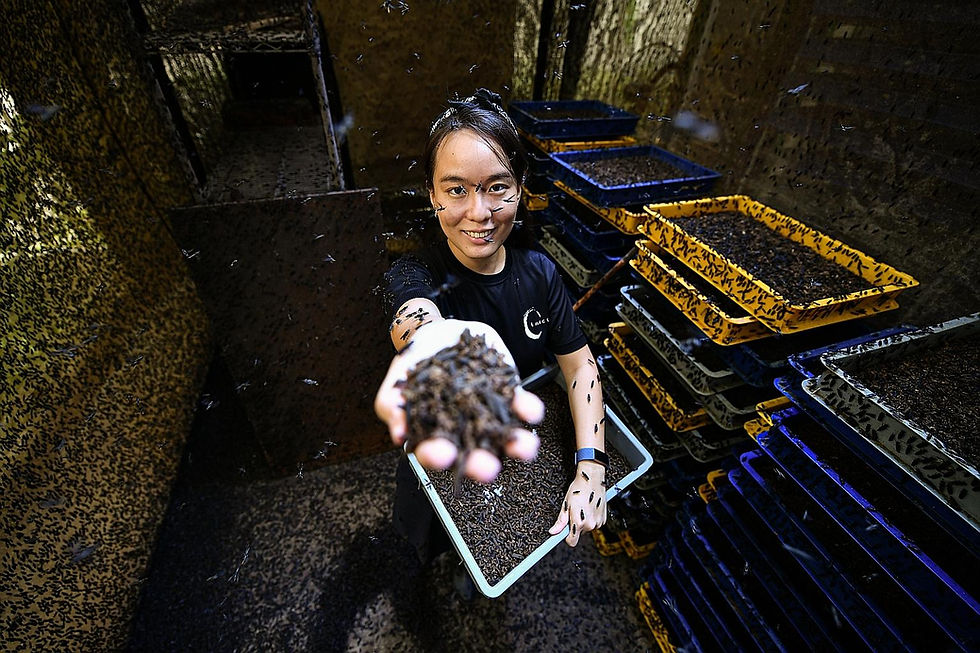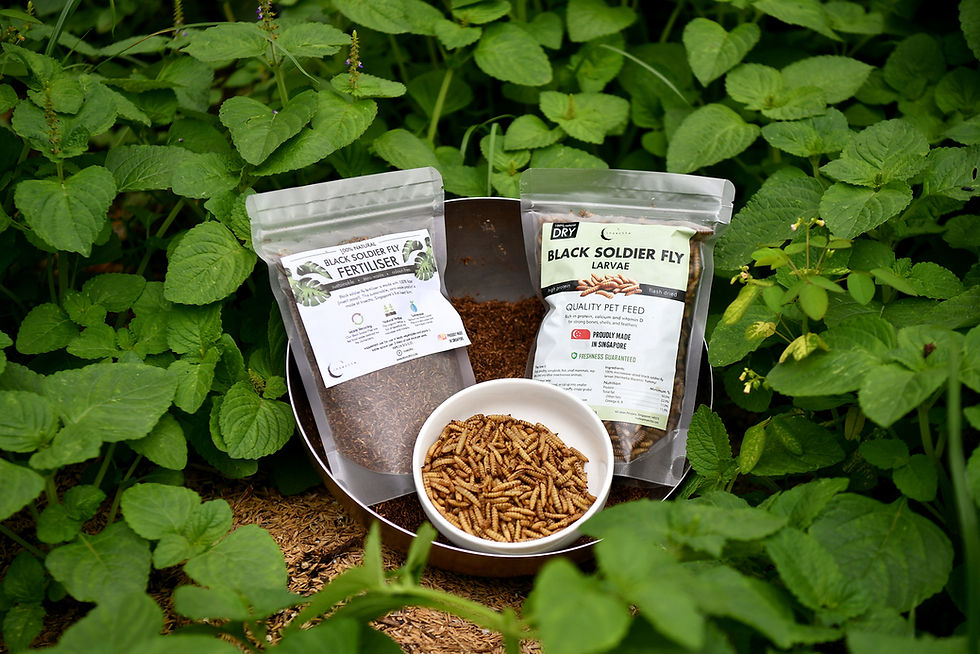Turning Trash into Treasures for the Pharmaceutical Industry - The Straits Times
- The Insectta Team

- Dec 27, 2020
- 2 min read

Ms Chua Kai-Ning, chief marketing director of Insectta, with a handful of pupae inside the mating chamber that houses one million black soldier flies.ST PHOTO: LIM YAOHUI
It takes a great leap of imagination to think that one day, the stuff that goes into our pharmaceuticals and cosmetics may be made up of only the most useful and beneficial parts of insects. And it takes even a greater leap to realise that these insects are also part of the solution to the food waste crisis! Insectta is glad to be featured in The Sunday Times by The Straits Time on the work we do transforming black soldier flies into amazing pharmaceutical components. Read the full article here or read on for snippets of our work.

Insectta is the first urban insect farm in Singapore to rear black soldier flies to process food waste and turn fly frass into organic food for plants and its larvae for animals.ST PHOTO: LIM YAOHU
Food waste is one of the biggest waste streams in Singapore. While the authorities look at how to convert food waste into high value products that can give back to the economy, various groups have taken steps to upcycle food waste.
Big future in tiny insects
The humble black soldier fly, with its voracious appetite as larva, is being harnessed to eat discarded food and create rich nutrients for plants and animals.
This ubiquitous and harmless insect is being put to good use in the valorisation of food waste, which otherwise has negative value as it cannot be recycled, says co-founder and chief marketing officer of Insectta Chua Kai-Ning, 25.
"Food waste is a big problem in Singapore. In fact, we have one of the highest per capita rates of food waste in our region. The power of black soldier flies is their ability to upcycle food waste by eating it and converting it into valuable bio-materials," she adds.
Insectta is the first urban insect farm in Singapore to rear black soldier flies to process food waste and turn fly frass into organic food for plants and its larvae for animals.
The biotech company develops high-value, insect-derived biomaterials, such as chitosan, for both the pharmaceutical and cosmetic industries. Research by Insectta found that biochemicals extracted from the larvae can be used to produce chitosan.
"By harnessing these flies to transform organic matter into valuable resources, we have increased the value of the food waste - where it once was a negative-value product - to a positive-value product that is worth a few hundred dollars a gram," Ms Chua says.
The global chitosan market is valued at US$7 billion (S$9.34 billion) and is expected to expand by 25 per cent between 2020 and 2030.
"Chitosan is a very potent wound-healing agent that can be used in bandages, sutures and anti-microbial coatings. Other than that, it can be used as a moisturiser for your face. Imagine - insect-derived cosmetics. Chitosan is also known to be a supplement used to lower cholesterol levels in the blood," she adds.
Insectta's research and development team is working with the Agency for Science, Technology and Research (A*Star) to yield multiple other high-value biomaterials from the flies.


![[Photo Gallery] Insectta's Biomaterial Extraction Pilot Plant Grand Opening](https://static.wixstatic.com/media/aa38f2_7f527405a60b4e74bd88d910a51cbd43~mv2.jpg/v1/fill/w_980,h_653,al_c,q_85,usm_0.66_1.00_0.01,enc_avif,quality_auto/aa38f2_7f527405a60b4e74bd88d910a51cbd43~mv2.jpg)

Comments